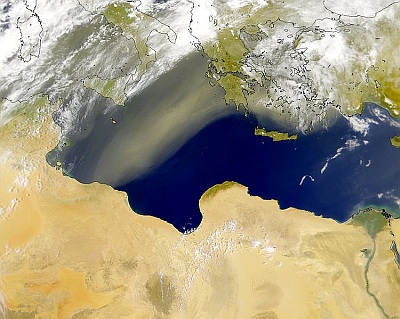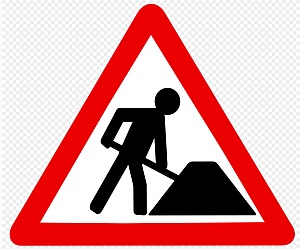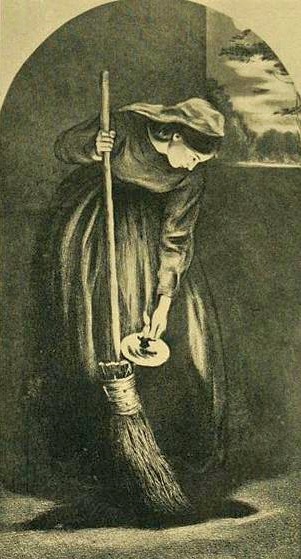"Crash Avoidance"
Originally composed for chapel at United Theological Seminary, Dayton OH,
and later re-worked for Preston Hollow United Methodist Church, Dallas TX
Prophets: Jeremiah 4:11-12, 22-28; Psalm 14; Gospel: Luke 15.1-10
Preaching from this book that is called "the words of Jeremiah" can be a problem.
Here is someone who resisted his call from God.
What a great example, eh?
Of course, he had a reason to resist. Look at the first message he gave, recorded in 1.14:
"Then the LORD said to me:
Out of the north disaster shall break out
on all the inhabitants of the land."
Oooh!
How would you like to have a sermon like that at your first appointment, and the first time you preach there?
What would you have done?
I don't know about you, but that's not the kind of first sermon I'd like to preach,
And as we have learned (or will learn) in preaching class, a very important part of preaching is to bring some good news.
It is indeed good news
that God loves us
and that God is with us.
That's why we've made the journey to chapel today.
But here is Jeremiah in the lesson we heard,
talking about God's presence,
how God is going to come to Judah.
And this is a problem,
because Jeremiah talks about God
as a wind called the sirocco,
a wind that comes into Palestine
in the spring and the fall.

A hot wind,
a wind full of dust,
a wind that is destructive.
It is obvious that the sirocco wind as God's presence is a symbol of judgment.
Yes... Jeremiah is talking about God's presence,
and that presence is a problem,
not some good news.
In the current lectionary cycle, some have noted that we have a week where the Song of Solomon appears,
And that means someone gets to talk about !sex!
It may be taboo,
but it always gets people's interest!
So you can probably imagine my reaction when I got the lectionary and read this passage from Jeremiah.
I could use something else, sure, but one of the challenges of using the lectionary is not to ignore a passage, but to learn and grow from the whole Bible.
And that's where I can be glad
that we believe that each of us has been called to this place,
whatever our vocational call may be.
Many of the stories of that call,
like my own,
tell of trying to avoid it until we are caught up in that hot wind of God's love.
A wind that sometimes must be very strong to get our attention.
Do you know where the wind comes from?
In John 3.8, Jesus tells Nicodemus that
"the wind blows where it chooses,
and you hear the sound of it,
but you do not know where it comes from
or where it goes."
The footnote tells us that "the same Greek word means both wind and spirit." I wish they had told us the same in translating Jeremiah, that the same Hebrew word means both wind and spirit, too.
God's presence in our life is a wind
and until that wind blows where it chooses
we will not find out how much
the spirit matters.
We can respond to God's Spirit, to God's wind,
by letting it fill a sail and move us
or by shutting ourselves inside, away from it,
away from its effects
until it has to blow the house down to move us.
We can try to avoid the wind,
but as the Psalmist reminds us,
and as we hear from ethicists and philosophers,
there are no neutral decisions.
We always live for God or to ignore God.
The decision we make says a lot about the journey that we're on.
Jeremiah has a vision of what that wind will do to the earth.
It's a picture of destruction,
a potent reminder that what we do can destroy the earth,
not just spiritually, but physically.

It's the same for the way we journey down the road of our call.
In my last summer at United, we took a journey that was physical and spiritual,
as we went to Erie, Pennsylvania.
As we got to the state line,
we were greeted with barricades and "Speed Limit 45" signs
with lots of obvious enforcement.
So much for the two hours from Cleveland to Erie that we had been told to expect.
When we got there, and mentioned the construction,
Our host said that in Pennsylvania,
they have two seasons, "WINTER" and "ROAD CONSTRUCTION"
and that during "Road Construction" it just happens to be hot.
We had noticed that, sitting on the road,
thinking that a cool breeze would be nice,
wishing that maybe there had been a better way to get there,
but realizing that there didn't seem to be much choice in how we journeyed.
Now, looking around the parking lot,
I gather that most of you have driven here, just as we drove to Pennsylvania.
And I've looked at the options if you don't live within walking distance
and I can understand why you've journeyed here that way.
And since most of you drove here or have driven at some point,
you probably also know about sitting in the heat of construction
waiting for a cool breeze, wishing for another way to travel.
We live in an automobile-conscious society, and these kinds of images are part of our everyday life. Now, there are other possibilities to get around, and in an automobile-conscious society, they don't get a lot of publicity, but they do exist.
One of these is a high-speed train linking Cleveland with Cincinnati, and one of the proposed routes goes through Dayton.
The news reporters at the television stations seem to dislike this idea, perhaps because, however environmentally sound it seems, it isn't that great for an automobile-oriented local economy.
But--
we like our automobiles, don't we?
Yes, it goes beyond just not having another choice.
But like it or not, we have to face up
to that the new earth that Jeremiah sees.
That desolation could become reality if we don't stop pouring hydrocarbons into the air.
So it isn't only Ohio that's looking at alternatives to automobiles.
High-speed trains in Ohio are only a proposal, but they are close to reality in two other regions.
One is the Northeast,
where some people would like to keep from completely paving over the original colonies,
which include historical sites and significant marshlands.
The other is Florida,
where the same problem of paving everything to accommodate tourist traffic to Disney World is threatening another great resource, the Everglades.
While both are looking at systems that employ very similar technology, each has very different philosophies.
The Northeast system uses existing systems of track that wind through the cities and towns.
The system will reach a lot of people.
But as with any mechanical system that carries people, you have to be concerned about safety.
In the Northeastern project, people will be kept safe by engineering that, while intending to minimize accidents, provides for something called "crash survival," or structures that will keep people from getting injured if there is an accident.
The people behind the Florida project, however, want to build a straight line between the two coasts.
It will be a whole new system,
and it will be completely isolated by bridges and fences from the world outside itself,
except at its two stations.
The philosophy behind this system is called "crash avoidance."
Now, there are two big concerns about crash avoidance.
First, while it's a really efficient system if you live near the station, it's no help at all if you are halfway along the line.
Second, have you ever seen a system that worked perfectly?
After all, we've all used computers, which, as we know, never make mistakes. That's why someone defined a computer as "a device for the rapid processing and dissemination of errors."
In an isolated system with no crash structures,
what happens when there is an accident or problem?
I think there's something in that difference that applies to life here and beyond our doors.
And in that is where
we can find the good news in Jeremiah.
To a lot of people, Jeremiah's theology says that you get what you deserve.
If you're good, you get rewarded.
If you're bad, you get punished.
He is warning the people here that it's punishment that's about to come,
but if these people deserve it, I wonder,
why is he trying to get them to change?
Maybe....
Maybe there's a moment of grace in the existence of the warning,
like when you're driving down the expressway, trying to ignore the backseat driver who always irritates you,
warning you about obvious things,
and you suddenly realize
that your backseat driver
is pointing out something you didn't see,
and your attitude changes.
Jeremiah is like that backseat driver,
and he knows that if there is not a change,
that this is just what will happen.
God is not seeking destruction,
but to get our attention,
just as in our calls
and in our life
where the wind blows from where we don't know,
but it's trying to tell us that the spirit matters.
(Read Luke 15. 1-7)
Now, living in the city and hearing this parable so many times,
most of us will have lost sight of something:
when 99 sheep are safe, it does not make sense to risk all of those safe sheep and chase down one that has wandered away or fallen behind!
Jeremiah is looking out for the people that he loves,
just as Jesus, the Good Shepherd, is also looking out for us.
Jesus went beyond the legal limits of getting what you deserve
to a new level,
to seek out the suffering
and in doing that,
he reminds us that justice is more than rules--
it is to bring home the good news
that the Good Shepherd is looking for us,
even when the wind is hot.
 (Read Luke 15.8-10)
(Read Luke 15.8-10)
It's the same in the other parable in today's reading.
Does it make sense to spend time and make a mess of your house, and risk setting it on fire with your candle, looking in its dim light for some small item you've lost that you can more easily replace?
— and then to throw a party that costs more than what you found or saved?
Jesus is asking us to consider what's really at stake in the choices we make.
Some of you may have heard of the work of a man named Lawrence Kohlberg,
who used something he called the moral dilemma.
It's a story that gives you two choices.
Neither choice seems exactly right,
and there's always a conflict.
The importance of the story in the study of ethics
is not the choice you make,
but what the reasons for the choice are,
what issues are really important.
There is something similar in the life of Jeremiah and the parables of Jesus
to the dilemma of how we journey through life.
You can just go straight from one end to the other,
practicing a crash avoidance system.
You can insulate and isolate yourself from what's going on around you.
You can treat work, school, and other events as a set of requirements,
a series of hoops on the way to wealth, retirement, or whatever else,
and just keep moving to that end station,
hoping that nothing derails you on the way.
Or you can jump into life.
You can wander through the towns and villages,
meeting people on the way,
learning to survive the crashes that will come
and having a rich experience in the whole.
I can't tell you which one to do,
but I'd like to make a case:
don't be afraid of the accidents.
Practice crash survival.
As you wish for a cool breeze as you sit there in the season of Road Construction,
remember to bring the grace of the search.
Take the risk.
Listen to the Spirit,
let its wind blow,
and sing.pray.moan.shout.
when it tells you.
Hymn: "I'm Goin' a Sing..."
Sirocco photo: NASA, http://en.wikipedia.org/wiki/File:Sirocco_from_Libya.jpg, PD
Construction sign, http://en.wikipedia.org/wiki/File:Baustelle.svg, PD
John Everett Millais, 1864, http://en.wikipedia.org/wiki/File:Parable_of_the_Lost_Coin.jpg, PD